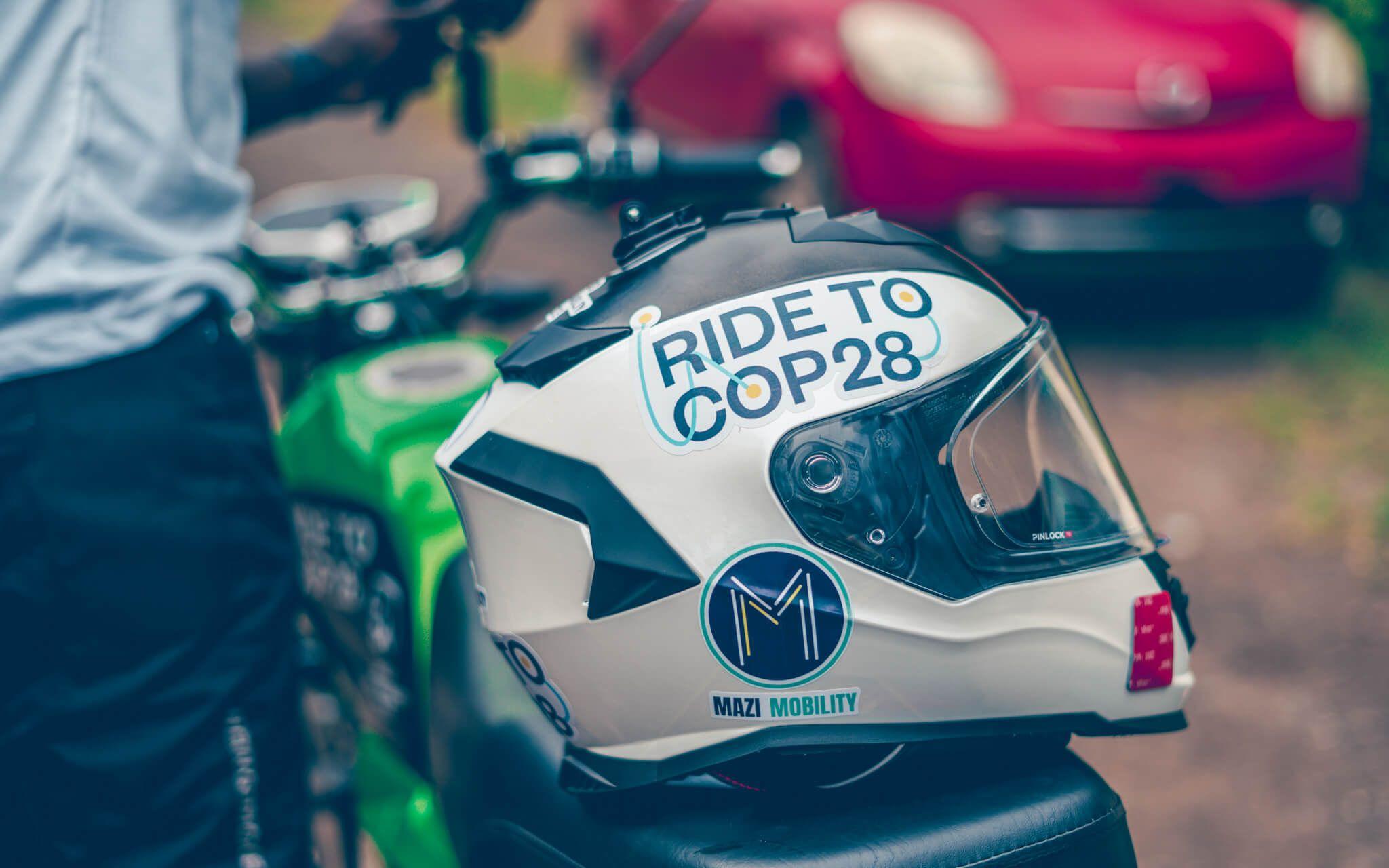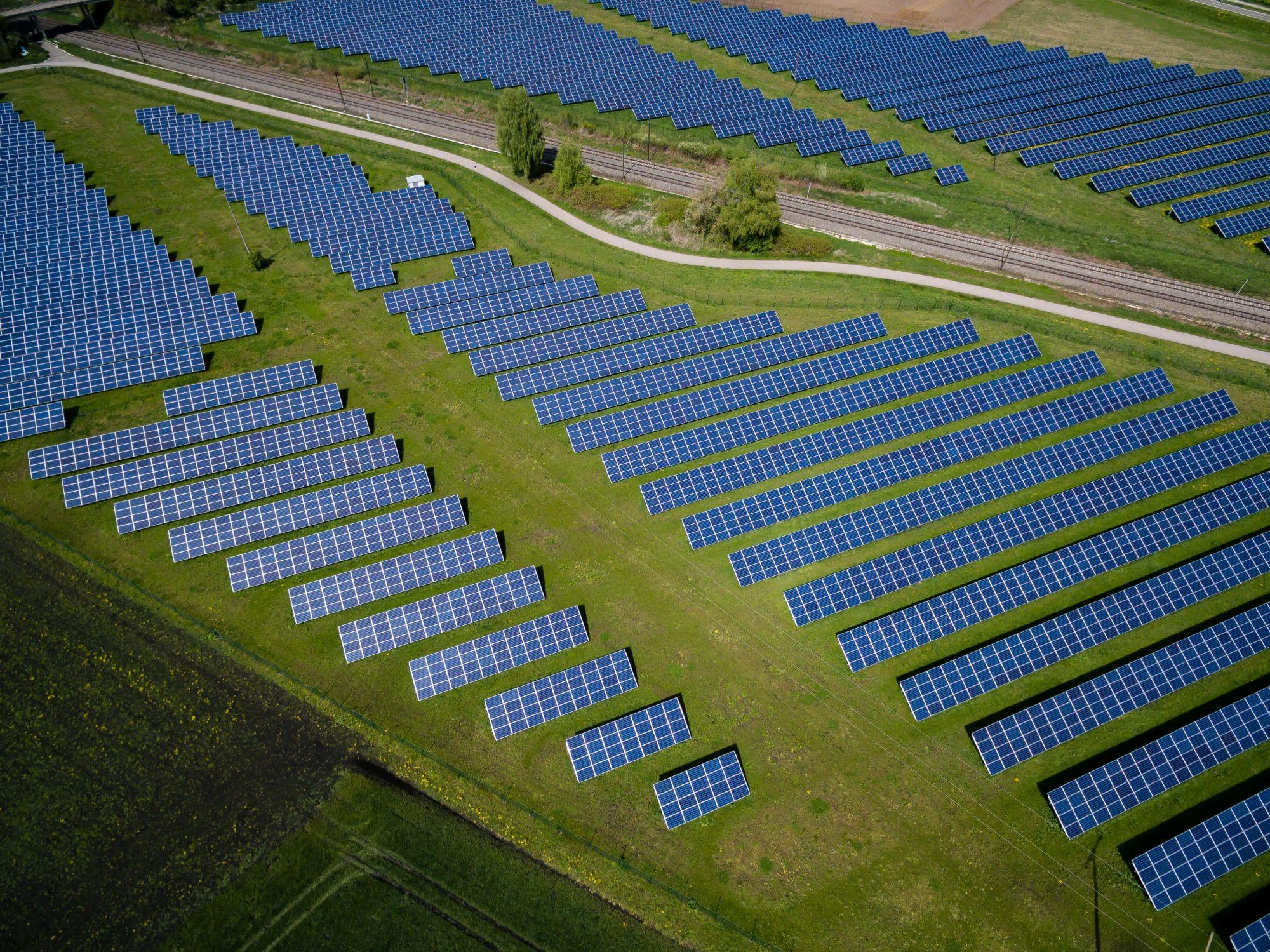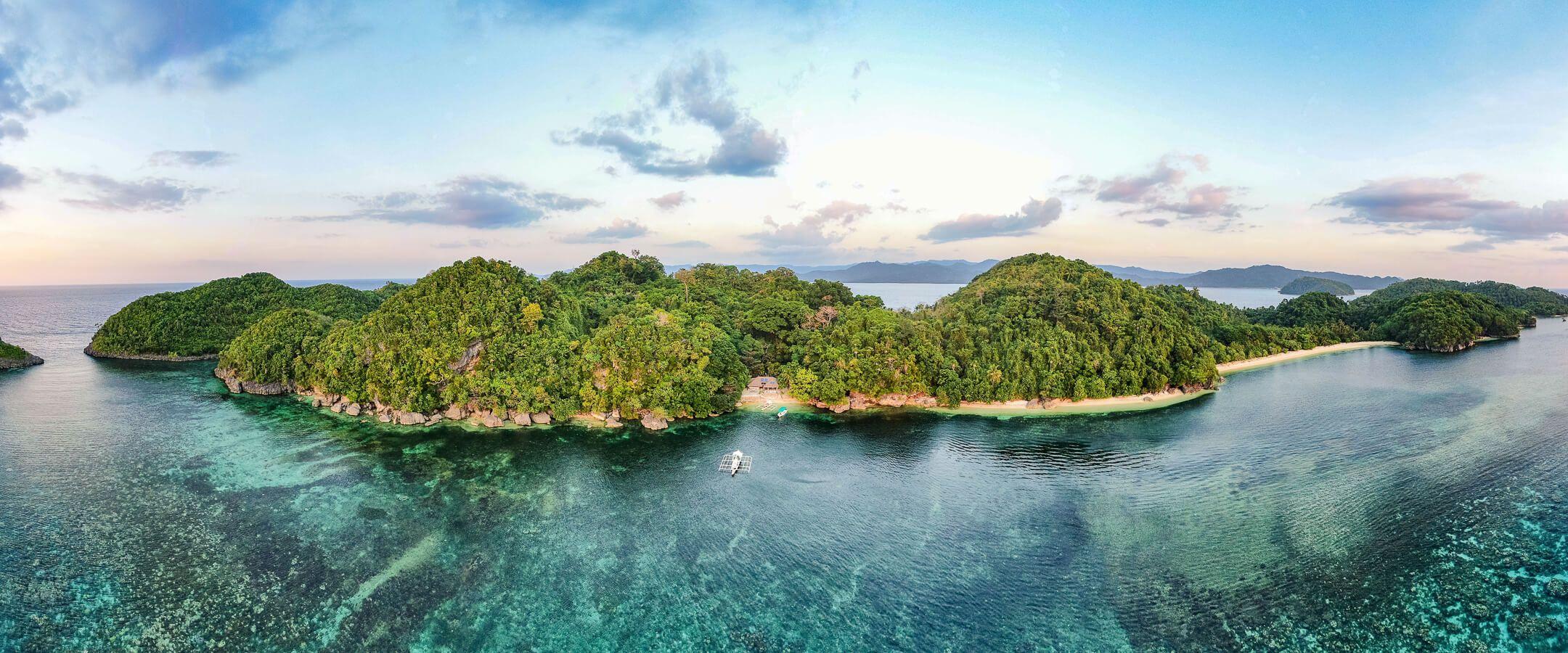Healing People and Planet in Borneo’s Rainforests
Inside Indonesia’s forests, a special clinic allows patients to pay for healthcare with tree seedlings. Born from hundreds of hours of “radical listening” to community needs, Alam Sehat Lestari combats illegal logging by offering accessible healthcare and sustainable livelihood opportunities to ensure the health of both people and planet.
As the rain thundered down in the ancient tropical rainforests of Borneo, midwives from Alam Sehat Lestari’s clinic were racing to save two lives. It was April 2021, and a young 21-year-old mother-to-be, Rana, had begun contractions in a remote village, but her small stature meant a life-threatening delivery.
The midwives rushed her to their clinic, but by daybreak her condition had deteriorated; she needed to be taken to the nearest health centre. There was just one problem.
“With slippery, impassable roads after the rain, an ambulance was impossible,” recalls Nur Febriani (Febri) Wardi, director of resource mobilisation and formerly executive director of Alam Sehat Lestari (ASRI). “The only option was a six-hour journey upriver by wooden boat.”
Using a tree branch as an IV stand and wearing makeshift hazmat suits, the team of midwives battled strong currents amidst heavy rain to bring Rana to safety. She was able to deliver her baby safely, much to the elation of the exhausted team.
“For families in these remote forests, healthcare is often a scarcity,” says Febri. “ASRI’s presence can truly mean the difference between life and death.”
This is a global problem - due to such structural barriers, Indigenous communities may have a life expectancy that is over 20 years shorter than that of non-Indigenous people, and suffer from higher rates of maternal, infant mortality, communicable illnesses and chronic diseases. “If there is no help at the time, it would be really risky for them.”
“I was really grateful for the tireless dedication of ASRI’s midwives, who go to extraordinary lengths to ensure every mother and child has a chance at life,” Febri says.
ASRI provides a health clinic, midwifery, dental healthcare, ambulances and monthly mobile clinics to reach a population of over 125,000 around Gunung Palung National Park (GPNP) and an additional 2,000 people near Bukit Baka Bukit Raya National Park in Kalimantan, Indonesian Borneo.
Their work, however, extends well beyond medical care. “We’re doing healthcare, conservation, education, livelihood support, all to support communities around the rainforest so that they can continue protecting or restoring the degraded forest.” ASRI’s definition of ‘health’ breaks boundaries – uniting people, rainforest and wildlife in a trailblazing, community-led model of healthcare and empowerment across species.
Exchanging Seedlings for Healthcare
ASRI is a one-of-its-kind clinic that allows patients to pay for medical treatment with tree seedlings, manure, handicrafts and even labour, breaking down barriers for vulnerable communities to access healthcare.
“A quarter of our reforested trees that we planted (more than 650,000) are from our patients,” Febri says proudly. In just 2024, ASRI Clinic received 25,090 tree seedlings from patients as non-cash payments for their medical expenses, all of which were used to reforest the local land.
The idea is profound, yet little-recognised globally. “The community can be healthy if nature is healthy. If nature is disrupted, then of course people will not be healthy, right?” she explains. This concept is now also referred to as ‘One Health’, which means patients are then investing in improving environmental and, ultimately, their own health. “The forest not only gives us health physically, but also mentally. It really connects with us,” Febri says.
At the ASRI clinic, if incoming patients hail from conserved forest areas that have reduced illegal logging enough to qualify as a ‘green’ zone, they can enjoy up to 70% off on their healthcare costs. “If communities still do logging, then they will get a lower discount, so it will create a collective awareness for the people to protect the forest more.”
The Gunung Palung National Park is a global biodiversity gem, home to over 2,500 critically endangered orangutans, gibbons, Malay sun bears, proboscis monkeys, clouded leopards, and elephants spread across over seven distinct forest types – from lowland peat swamps, coastal mangroves to montane cloud forests. However, over the past century, Indonesia has faced devastating deforestation, with Kalimantan losing 30.7% of its intact forest from 1973 to 2010 to extractive industries, such as plantations and illegal logging.
ASRI implements large-scale reforestation across GPNP, planting native trees such as hardwood, durian, mangosteen and stinky beans. “People love it. And also orangutans love it,” she smiles. They also train farmers to transition to organic practices in harmony with the land.
Their work touches upon a crucial fact – global deforestation for industry isn’t just an environmental problem, but a health crisis. Without intact forests, barriers between people and wildlife pathogens crumble, raising the risk of infectious disease outbreaks or disease spillover from animals. Forests also regulate global climate, purify air and water, provide medical ingredients and protect against disasters such as drought and wildfire.
The community can be healthy if nature is healthy. If nature is disrupted, then of course people will not be healthy, right?
Listening to the Voice of the Rainforest
When ASRI’s co-founder, Dr Kinari Webb, first visited Borneo as a college student for biology research, she was dismayed to find that the bright chorus of chirps, trills and animal calls in the megadiverse forest was punctured by a harsh, unwelcome sound – the deadly grating rumble of chainsaws.
Instead of judging, she began to ask questions. “Why?”
The answers were poignant. Logging was one of the only available livelihoods that could cover the costs of much-needed healthcare access.
Years later, in 2007, together with Dr Hotlin Ompusunggu, Dr Webb co-founded ASRI, and the team spent over 400 hours in “radical listening” to community needs. “We believe that the community around the forest are the experts. So they know the problem, and they must know the solutions,” says Nur. “We don’t bring any intervention or program before we hear from the community.”
Today, their clinic’s offices house a rather unusual room - one dedicated to safekeeping more than 300 chainsaws that were previously used for illegal logging in the surrounding land. These were part of their ‘Chainsaw Buyback’ program, which asks loggers to hand over their tools in exchange for receiving financial and business support to transition into a new, sustainable livelihood.
This was Nur’s Febriani’s childhood dream. As a little girl, she found herself wondering if her homeland’s beautiful forests, which she had grown to love during regular hikes and camping trips as a Girl Scout, would remain for long. ‘I want to keep that image the same,’ she thought. “I think it was a call from the heart, just to contribute to people and work with the community.” Especially amazed by the chainsaw buyback programme, she had joined ASRI in 2018 after a background in public health in the NGO sector.
Together, they’ve restored over 41,000 hectares of land, and an estimated 50,000 trees have already been protected thanks to their chainsaw buyback programme – allowing rare species like the Bornean ironwood, Shorea, baobab and elephant laurel to remain homes for wildlife.
“It really also shows how important is the work that we are doing, not only because of the wildlife that is returning, but also the community around - they really make use of the forest. For example, the fruit trees, people are harvesting them, or they are involved in the reforestation project.”
Their reforestation drives also gave rise to a need for eco-friendly polybags, which they started making out of bamboo waste instead of plastic. “It's really a win-win solution for us, it reduces our plastic poly bags. And for the community, women can earn some money from making it.” ASRI also helps empower vulnerable widows by providing raising goats as a sustainable livelihood opportunity.
ASRI has recorded a reduction in infant mortality of 67%, a 90% fall in illegal logging and significant decreases in diagnosed cases of diseases such as malaria, tuberculosis, childhood-cluster diseases and diabetes. Meanwhile, instead of felling forests, some of the repurposed chainsaws now help cultivate life - reshaped as agricultural machetes or standing in testament to hope as a symbolic tree sculpture outside the clinic.
We believe that the community around the forest are the experts. So they know the problem, and they must know the solutions. We don’t bring any intervention or program before we hear from the community.
Nurturing Roots of Resilience
Nevertheless, as the climate crisis intensifies, increased floods, droughts and wildfires have struck Indonesia, devastating communities and ecosystems.
In 2019, wildfire ripped through Gunung Palung National Park, causing respiratory illness for an estimated 1 million Indonesians.
“The one moment that really touched my heart was when I had to sleep in smoke,” recalls Nur Febriani. She slept wearing a tight mask as flames engulfed the forests around them. “We just couldn't escape anywhere. It’s in the room, it’s in the house, the smoke. There were no airplanes or ships - everything stopped.”
“I felt that it’s actually really scary. If we keep having this,” she says. “It was too thick. We saw the ashes on our motorbike, on our hands.”
She knew something had to change.
Nowadays, ASRI also offers climate-related awareness and education programs for farmers and local communities.
Building the Future with Seeds
ASRI’s path has been challenging, with difficulty securing funding as less than 1% of global climate aid reaches frontline community initiatives. “I want to advocate more for resources for communities doing work on the ground,” she says. She is now globally recognised as a National Geographic Explorer.
Her favourite part is seeing the impact - whether through wildlife cameras, stories of successful transitions to sustainable livelihoods, or building global partnerships. “It is really fulfilling to see how they grow - someone from our ASRI Kids program then learning conservation or studying forestry in their university, and then I would say I feel that my work is meaningful.”
In the future, they aim to replicate or scale up to other forest areas in Indonesia, Papua, and Sulawesi. “We have that vision to grow and share our experiences with other forest communities that have similar challenges.”
As for Rana, ASRI’s midwives continued to visit her through their mobile clinics, to ensure that her newborn baby was thriving, full of life and ready to take root in a flourishing rainforest.
Most Popular
The Climate Tribe delivers stories about Biodiversity and Conservation, Circular Economy, Food and Water , and how they intersect with climate.
Subscribe
Get the latest stories inspiring climate action around the globe straight to your inbox.





